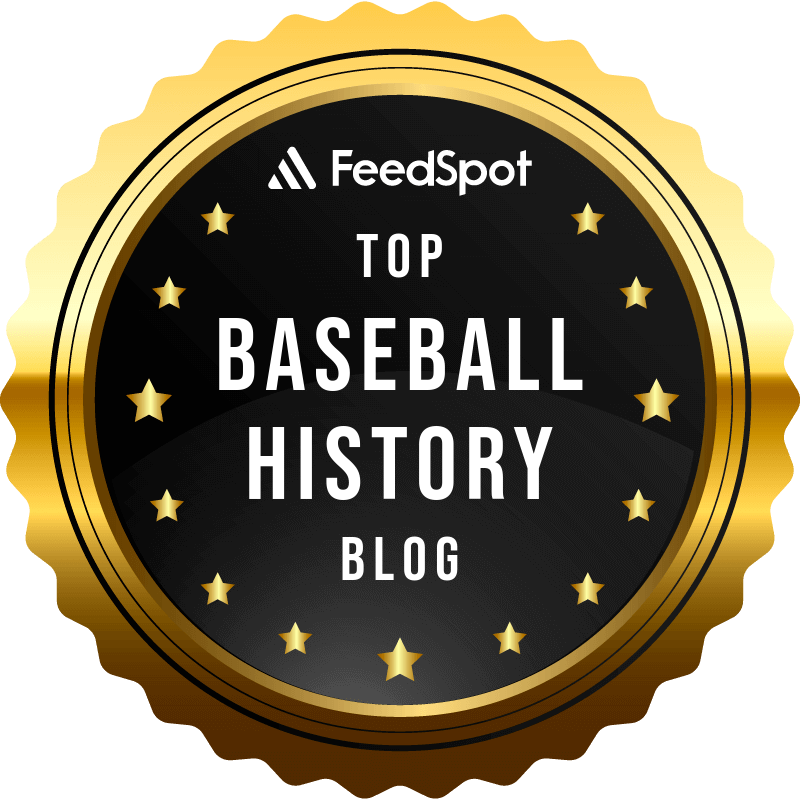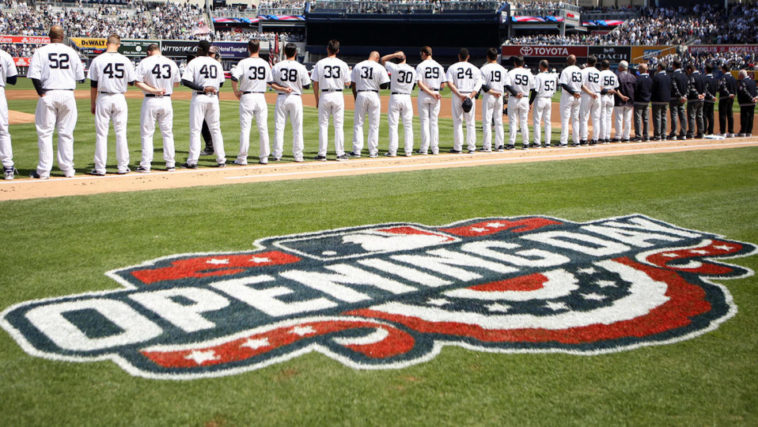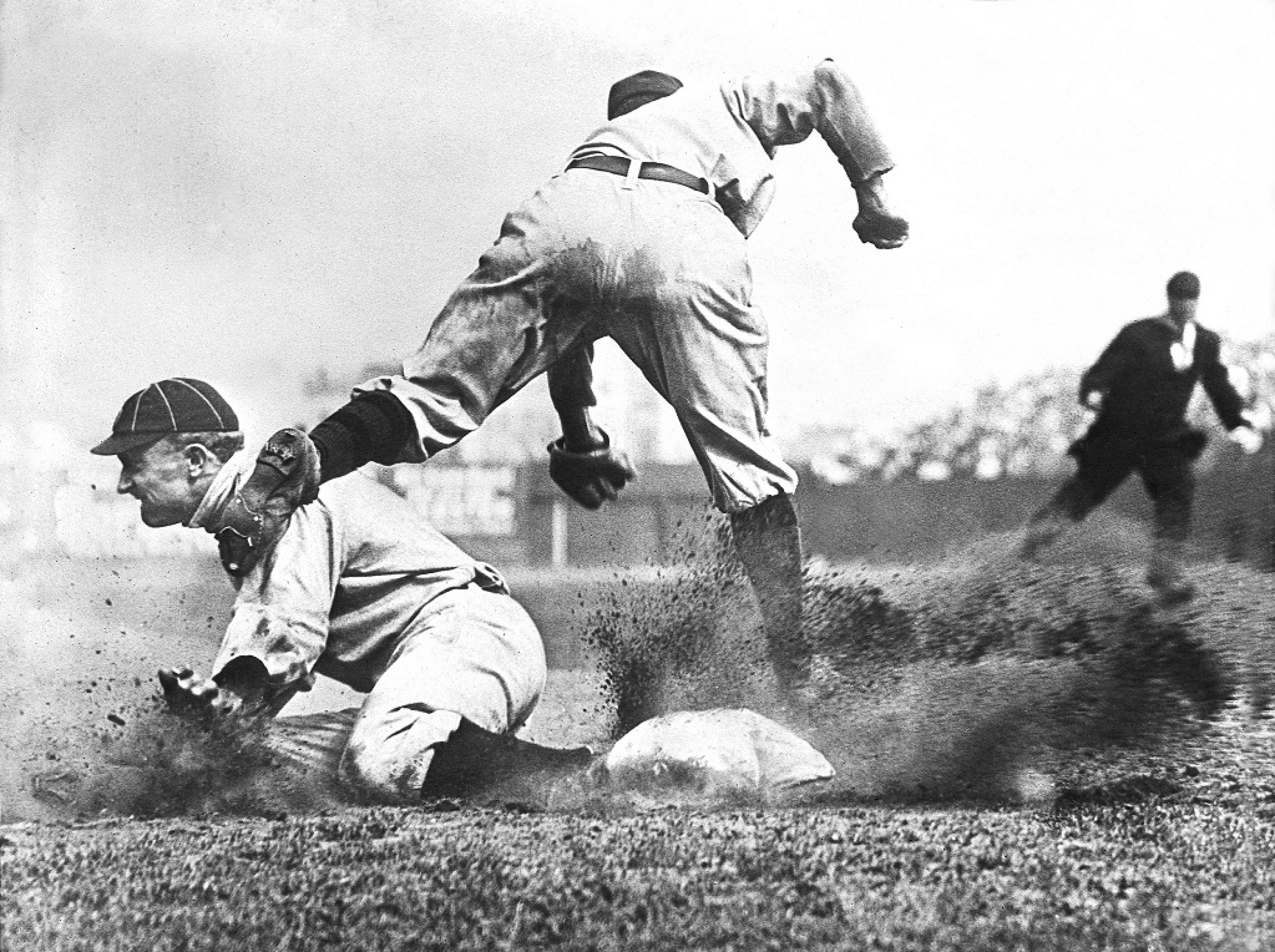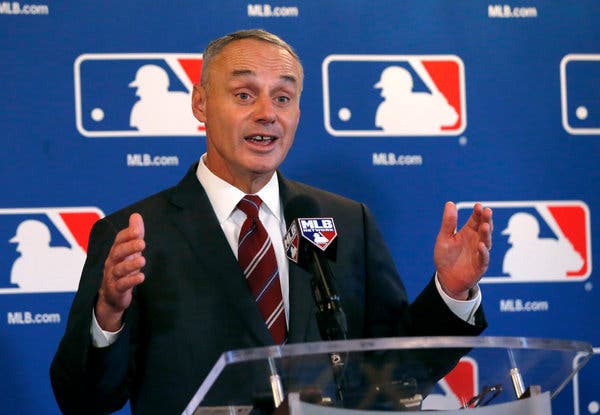Featured Panoramic Photo Above:
Classic Charles Conlon photo of Ty Cobb sliding into Jimmy Austin
Baseball History Comes Alive Now Ranked As a Top Five Website by Feedspot Among All Baseball History Websites and Blogs!
(Check out Feedspot's list of the Top 35 Baseball History websites and blogs)

Guest Submissions from Our Readers Always Welcome! Click for details
THE BASEBALL HISTORY COMES ALIVE BLOG
Please note: As we compose new blog entries, we will now send each one out to all our subscribers as we post them. Here’s a link to see the entire Blog Archives -GL
February 4, 2021
MLB VS. THE PLAYERS’ ASSOCIATION
I don’t think any of you will dispute the fact that baseball today is just as much – or maybe more – about the money as it is about the game on the field. Major League Baseball is now a multi-billion dollar business, with revenues rising almost yearly. There are massive television deals, profitable teams, money-making regional networks, sponsorships, stadium naming rights and merchandising all over the place. Ticket prices are at an all-time high in most MLB cities and now legalized gambling has entered the mix, with MLB taking its fair share of an enterprise that used to be taboo. All a golden goose for baseball.
Then came the Coronavirus pandemic and a shortened 60-game season without fans at the ballparks. The pandemic only increased the animosity between Major League Baseball, led by Commissioner Rob Manfred representing the owners, and the Players’ Association, a union originally formed to protect players’ rights and to make sure they were getting their fair share of the pie. With the 2021 season on the horizon and tentatively set to begin on time, the animosity and distrust between the two groups is once again threatening the game on the field.

Was it always this way? Well, not exactly. Sure, money played a part in the earlier days of the game. But before free agency, the owners had the hammer and held all the cards. They weren’t making anywhere near the money today’s owners make, so they always watched the bottom line when it came to players’ salaries. And most of the players were working stiffs, blue-collar guys who loved the game they played. Their salaries often fell short of allowing them to fully support families, necessitating off-season jobs for many. They didn’t have the luxury of training all year round.
A couple of examples. The great Honus Wagner, a superstar in the very early days of the game, reached a salary of $10,000 a year, one of the highest in the game then. I’ve read that every year when he’d go in to negotiate a new contract and the owner asked him how much he was looking for, Honus would just say, “Same as last year. That’s plenty enough for me.” Imagine that happening today when everyone chases the very last dollar.
I once interviewed the Dodger pitcher Clem Labine, who played in the 1950s. One year when it was time to negotiate a new contract, he took a friend with him to the Dodgers’ offices. It wasn’t an agent or even a lawyer, just a friend he felt understood economics and negotiating better than he did. The Dodgers flat out refused to even let the guy in the door. Labine had to go it alone, as did all the players back then. And in those days, players wanted to win the World Series not so much for the prestigious ring, but for the extra $2,500 or $3,000 winners share, which made a big difference in their incomes.
And so we come to today. Once free agency arrived and the Players’ Association was formed, the real fun began, and the disputes were generally about money. There were several work stoppages, one in the middle of the 1981 season resulted in a split season, and another after about 112 games of the 1994 season that resulted in the season ending abruptly and with it a cancellation of the playoffs and World Series. Plus it led to a shorter 1995 season, which began later than usual until the dispute was settled. All the while MLB and Players Association continued to claim that the fans were first and foremost in their minds.
The animosity resurfaced last year when the pandemic completely roadblocked the game. The two sides began fighting about how many games to play and how much of the players’ salaries should be paid. The players wanted a 100-game season while MLB, worried about financial losses, settled on 60 games with prorated salaries. At the same time they increased the number of teams in the playoffs because they knew they’d get a great deal more television money for the extra games. Then, at season’s end, they claimed they lost billions of dollars with empty stadiums and the short season.
Sure enough, it started all over again this year. At first, it was announced that the season would begin on time, spring training on February 17, and the season on April 1. Then MLB reneged, and proposed that spring training not begin until late March with the season beginning April 28, with a 154 game schedule. They also wanted to continue with an expanded postseason and, if the players approved it, they would implement the designated hitter in the National League, something the players want. Again, the owners are thinking about revenue, feeling that there’s more of a chance that fans will be allowed at games with the later start and the Covid vaccine now rolling out. As much as the players wanted a universal designated hitter, they were against the expanded postseason.
On February 1, the Players’ Association rejected MLB’s final proposal, saying the pitchers were already ramping up for a February 17, start, and to stop and start again would open them up to injuries. And while the owners said they would be paid for 162 games, some feel the distrust between the two sides made the players skeptical if they played just 154. The players also feel they may be pushed into too many doubleheaders of the seven-inning variety.
Who’s right and who’s wrong? Tough to say. Both have some valid points, especially with the Covid-19 virus still raging in many areas, including the spring training sites in Arizona. But the point is that each side is looking to protect hearth and home, and their bank accounts. With the collective bargaining agreement expiring at the end of next season, look for a major war between the two sides and, perhaps, another work stoppage, the first in a long while.
One other thing. MLB has said continually is that they want to encourage more young fans to return to baseball, which now has the oldest fan demographic of all the major sports. Yet there are no World Series games played in the afternoon so youngsters can watch and fewer than ever in the regular season. The scheduling is a slave to television money, which allows MLB to produce a bait-and-switch at the last minute, moving a scheduled Sunday afternoon game to ESPN’s Sunday Night Baseball, beginning at 8 p.m. Some fans already have their tickets for planned Sunday family outings at the afternoon game, kids included, and are suddenly told it will be a night game. How’s that for putting the fans front and center?
I’m not one of these revisionists who keep saying the old game was better. It all depends on the definition of the word. But I think many fans from my generation will agree that yesterday’s game, in many ways, was more enjoyable and exciting. The big money won’t ever go away and that makes today’s players pretty lucky guys. But let’s hope the age of reason returns and someday the fans, young and old, do become important again and that the game on the field reflects that. And also that there can be lasting peace between the owners and players.
Bill Gutman
As always, we enjoy reading your comments
Here’s a link to see the entire Blog Archives



Comment from Gary Kenter:
Hi Bill – I really enjoy your articles! I’m totally with you on your perspective here. Your comment about WS games not being played in the afternoon reminded me of the time I HAD to leave middle school for a “dentist” appointment so I could watch my favorite player, Bob Gibson, pitch an afternoon game against the Tigers in the 1968 Series. And, unfortunately, the word “compromise” is virtually absent from baseball as it is in most politics today. Compromise is now viewed as a weakness rather than, in the past, something to do for the betterment of the greater good so that everyone could gain rather than have “winners” and “losers”. It seems most situations today result in one side wanting to claim victory over the other side. The thirst for more power and more money seems to drive and perpetuate this outlook. All the best to you, and I’ll look forward to your next article! Gary
Hello Gary. I laughed when I read about your “dentist” appointment. When I was growing up with baseball in the 1950s all World Series games were in the afternoon, so we got to not only see our favorite players, but also become real, lifetime fans. You’re also right about the lack of compromise in so many places today. Each side wants their way, in effect to win. That’s why I find it so hypocritical when MLB croons about wanting to please it’s young fans and bring more of them into the fold. I’m afraid it won’t happen when the bottom line is the most important things to them. I know it’s the way the world works today, but sometimes it’s a shame that it has to be that way.
Comment from John Alcamo:
I want to go back to the ballpark to see the games I miss not being at the Yankee Stadium I do believe that the Old Stadium was a lot better than the New Stadium I continue to get the emails to purchase season tickets and will not because we do not know when we will be allowed to go back to the ballpark we support the players and the owners it is time that they make the prices more affordable and put the fans first again like they did after the strike of 94 .
Great column, Bill. I really enjoyed it. Like you, I have no solution and see points on both sides. Unlike GL, I missed a 1959 White Sox World Series game – My dad had two tickets and took my aunt because I had to be in school. I still remember him saying there’d be plenty of times for me to go to a WS game since I was so young. Well, 1959 to 2005 is a while! Full disclosure is that I am glad my aunt, a huge baseball fan, went. She had also attended the Cubs WS in 1945. And Dad took me to a lot of ballgames over the years.
Thanks for bringing back those old memories, Bill. Guess there’s good in everything, even in money driven ball players and owners.
Thanks for the comment, Jay. I’m sure your aunt loved the game you missed since she was such a great fan. Young kids today don’t really have a chance to even watch on television with the games at night. One of my memories of good luck was rushing home from school in 1951, running up the stairs and coming in just in time to see Bobby Thomson his his famous home run to win the pennant. Memories like that never leave you, but I’m sure you have many baseball memories of your own. Did you get to see a Series game in 2005 or just watch on television? I went to many games as a kid and even a young adult, but never to a Series game. The closest I came was when I was a Sports Editor in Greenwich, CT in 1969 and got last minute tickets from the Chief of Police for the Mets/Braves third, and as it turned out final, playoff game for the pennant, the first year of divisional playoffs. Got to admit it was a great experience and I got to write a nice column about it.
Sadly, Bill did not attend a WS game in 2005 to cheer on the White Sox. I had moved to Grand Rapids MI by then and life got in the way. I did watch on TV – Just not the same.